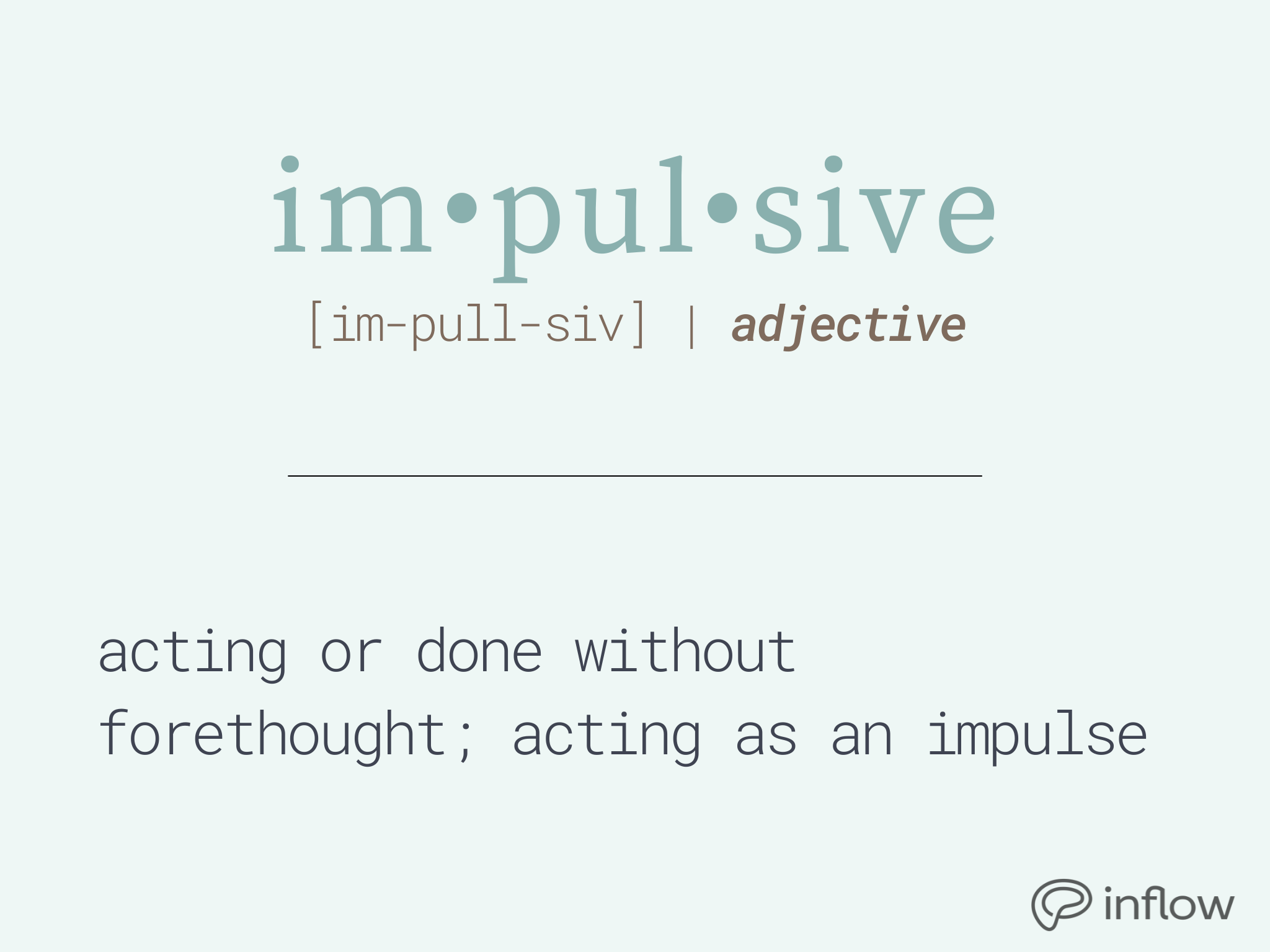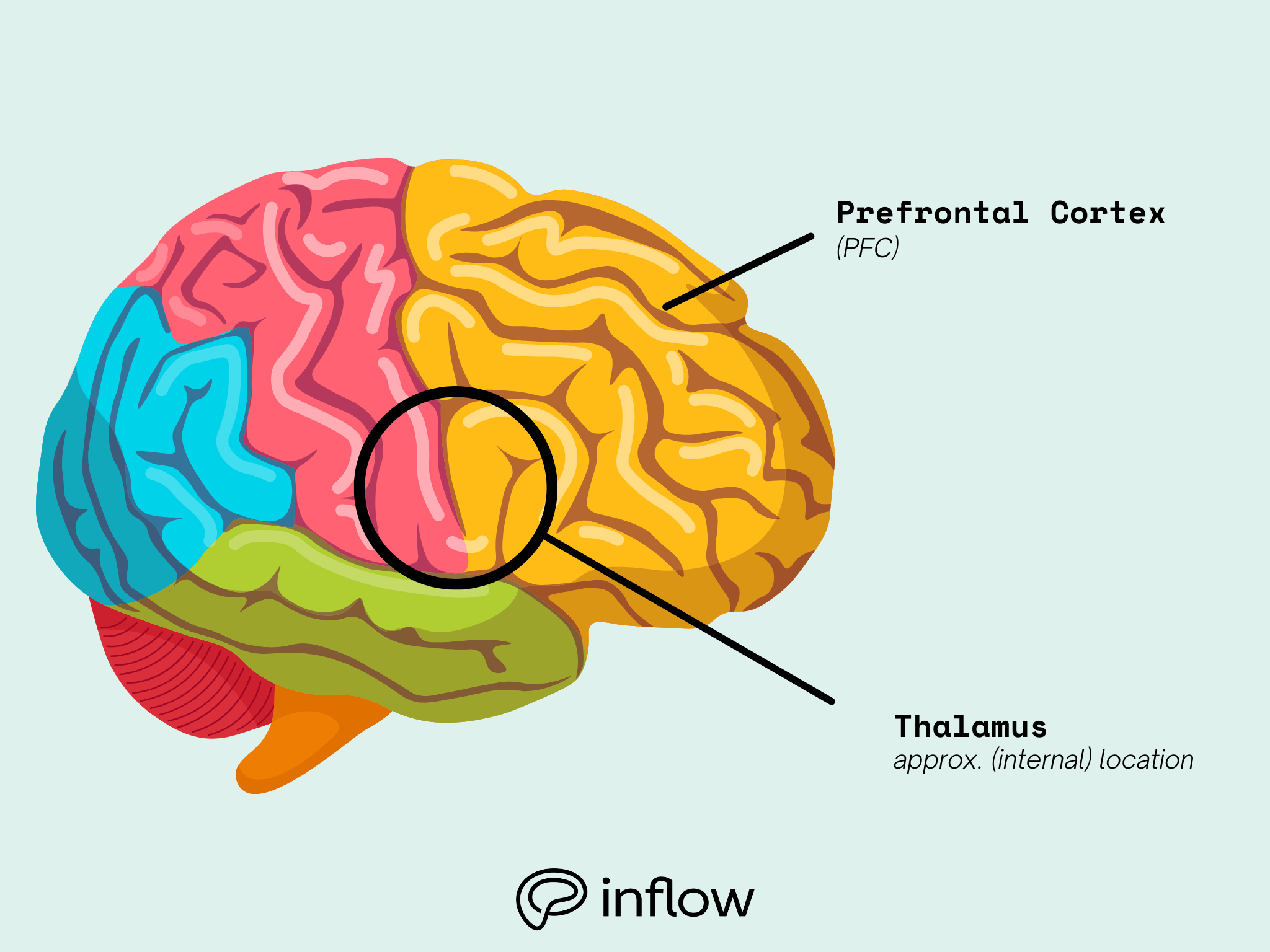People with ADHD are often more impulsive than neurotypicals due to dopamine-seeking behaviors and lack of premeditation—or thoughtful planning.1 The simple definition of impulsivity is speaking, behaving, or making choices without taking the time to consider the consequences of the actions. If you struggle with impulse control, please know that you are not alone!
Too long; didn’t read
- Impulsivity is one of the most common symptoms ADHD—especially those with the hyperactive-impulsive presentation.
- Adults with ADHD are commonly impulsive with their decision-making, financial responsibility, and emotions.
- There are plenty of ways to cope, such as cognitive behavioral therapy (CBT), mindfulness, and ADHD medications.
- While there’s no single quick fix that will magically turn us into careful, calculated decision-makers overnight - with practice and proper support, we can build new skills to help us improve.
Impulsivity: what it means and what it looks like

In children and adults with ADHD, or attention-deficit/hyperactivity disorder, impulsivity shows up in a variety of behaviors.
Of course, it can be more intense in some individuals than others, especially if they have the hyperactive-impulsive subtype, as opposed to the inattentive subtype (formerly known as “ADD”).
Examples of impulsivity
- Struggling to stay on important tasks after being struck with a brilliant idea.
- Lack of self-control at checkout counters and buying all of the things.
- Blurting out inappropriate, ill-timed, or even hurtful things in conversation.
- Making big – sometimes life-changing – decisions without thinking them through.
If you’ve found yourself in any of these situations, it’s likely that you later asked yourself, “what the heck was I thinking?” The thing is, you probably weren’t thinking—you were just acting without evaluating possible outcomes.
The neuroscience of ADHD impulsivity

To others, impulsive ADHDers might seem as if we're simply being rude or chaotic—but it’s not a lack of caring that leads to impulsivity. Like many ADHD symptoms, impulsivity is caused by a difference in our brains!
Prefrontal cortex (PFC)
The prefrontal cortex (PFC) is the “driver” of our minds—it regulates emotions, decision-making, and motivation.
Abnormal PFC function is associated with most ADHD symptoms2, but with impulsivity, there’s another brain region involved: the “crossing guard” thalamus.
Thalamus
The thalamus signals the PFC to start or stop certain behaviors via dopaminergic pathways. For ADHD brains, that communication is slowed, leading to increased impulsivity.
⚛️ Science translation: The signals that are supposed to tell us to “stop, evaluate, and make careful decisions” aren't as strong in ADHD brains.
4 signs that you might be impulsive
1. You tend to interrupt people when they’re speaking
Knock knock.
Who’s there?
Interrupting cow!
Interrupting cow wh–
MOO!
It’s me. I’m the interrupting cow.
2. You really have trouble waiting your turn
I can’t tell you how many game nights I’ve ruined because I couldn't handle waiting for someone to take their turn in Scrabble. Just let me do it!
This also applies to adults and teens who grow impatient while driving and have a tendency towards road rage.
3. You are prone to emotional outbursts
Emotional outbursts include everything from anger to sadness, and everything in between. But - serious question:
How can I possibly be expected to take a deep breath and count to 10 when I’ve already gone full She-Hulk?
4. You make quick decisions that you regret later on
Impulsive choices might include things like:
- Overindulging with foods and drinks (“compulsive eating” or "binge eating")
- Risky sexual behaviors
- Substance overuse and abuse
- Overspending
Take it from me - the hangover, nausea, walk of shame, and overdraft fees are not worth it.
ADHD impulsivity: 3 coping strategies and treatments

Cognitive behavioral therapy
Cognitive behavioral therapy, or CBT, is a form of talk therapy that can help patients explore the relationship between their thoughts and behaviors, and work toward restructuring those cognitive patterns and connections.
A therapist specializing in ADHD may be able to help you adjust your beliefs around your impulses - from negative or destructive ones (“I can’t control myself!”) to a more positive and empowering perspective (“Controlling my impulses is hard, but I can do hard things!”)
Mindfulness practices
Some people with ADHD struggle to focus on the present moment they’re in.
Practicing mindfulness—through meditation or breathing exercises—can help us to slow down and pay attention to our thoughts and related behaviors.
When we practice becoming aware of our impulses, we’re more likely to consider them—and their consequences—and make more mindful decisions on how to move forward.
Medication
Many ADHD adults report improved impulse control with the use of medication (both stimulant and non-stimulant) as a part of their treatment regimen.
Talk to your doctor about whether medication is an appropriate treatment for you.








